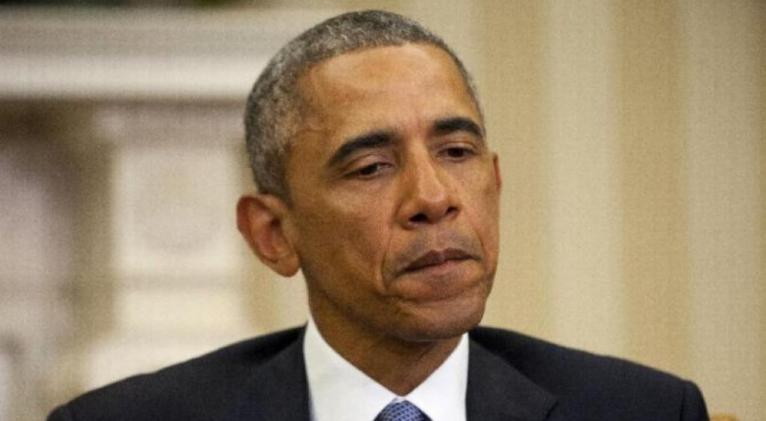How can Barack Obama put an end to economic sanctions against Cuba?
especiales

Since 1996 and the adoption of the Helms-Burton Act, the US Congress is the only one that can lift the siege against Cuba. But President Obama can force the Congress to do it…
Since the adoption of the Helms-Burton Act in 1996 —a legal aberration of exterritorial and retroactive character that makes economic sanctions against Cubans tougher— the US President has no longer the executive authority to enforce the end of the economic, old-fashioned, unfavorable, and cruel siege —according to Obama’s own words. In fact, only the Congress can put an end to a hostile policy that has been condemned by the international community, the US public opinion, the Cuban community living in Florida and above all, the business world in the US.
The US Chamber of Commerce, which represents the business world and nearly 3 million companies, urges government and Congress to approve a new policy towards Havana. According to its chairman Thomas Donohue “It’s time to remove the political bans that were set long time ago. It is time to eradicate our differences. It is part of the American people’s interest as well as American companies’”. [1]
In his historical speech delivered on December 17th, 2014, where he announced the re-establishment of US-Cuba relations after half a century, the US President appealed the Congress to vary its view on Havana. “I encourage the Congress to open up a serious and honest discussion on the lifting of the embargo”, stated Obama [2].
Any solution? To authorize ordinary tourism
Actually, President Obama has a very simple tool to accelerate the end of the economic and cruel siege —main handicap for Cuba’s development— that affects all sectors of Cuban society. He just has to allow American citizens to travel to Cuba as ordinary tourists. American citizens are allow to travel freely to any country in the world, even China, Vietnam, or North Korea, but the government bans them from visiting the Caribbean island.
By breaking this barrier, which separates both people, Barack Obama would allow more than a million American tourists to travel to Cuba the first year. This figure would surpass the 5 million tourists’ visits annually in five years. Cuba is a natural destination due to its historic and geographic reasons. Hence, a profitable market would emerge for American airlines, not to mention the transportation industry, and travel agencies, or other fields linked to massive tourism. Only 90.000 US citizens —not counting Cuban-Americans— visit Cuba every year for professional purposes; namely, educational, cultural, humanitarian, or related to sports under the licenses granted by the State Department of the United States.[3]
The massive flow of tourists to Cuba would be beneficial for Cuban economy, whose resources depends highly on this sector, but also for American economy. As a matter of fact, US farmers would be also the big winners if there is a tourist flow between the two nations, since their products would be bought to feed millions of newcomers. Cuba imports most of its food.
With the authorization of regular tourism to Cuba, the US business world would not stop pressing the Congress members —their political careers depend highly on the money they get from private companies—, so they would definitely terminate the economic sanctions against Cuba. The Caribbean country has a natural market of 11.2 million people and potentially 10 million tourists from all around the world. Indeed, Cuba has just surpassed the three million tourists in 2014.
At first, Obama could order the US Department of the Treasury not to pursue American citizens who travel to Cuba outside such framework defined by the administration. Economic sanctions are very severe for those who travel without permission via Canada or Mexico. It would ease tourist visits to Cuba and fix a clear violation of US Constitution, which defends the right to travel freely.
So, Barack Obama has enough room to force the US Congress to put an end to the economic sanctions that are disapproved by most countries in the world, isolating the US from Latin America. Both, the Cuban and American people would be the main beneficiaries in an alleged re-establishment of economic, commercial, and financial relations between the two nations.
[1]RTL, «La Chambre de commerce américaine souhaite une nouvelle relation USA-Cuba», May 30, 2014 ; AFP, « La relation USA-Cuba doit changer maintenant, selon le président de la Chambre de commerce américaine », May 30, 2014.
[2]The White House, « Barack Obama’s Speech: Charting a New Course of Era », December 17, 2014. http://www.whitehouse.gov/issues/foreign-policy/cuba (December 17, 2014)
[3]Matt Beardmoredec, “How Travel to Cuba May Change”, The New York Times, December 18, 2014. http://www.nytimes.com/2014/12/19/travel/how-travel-to-cuba-may-change.html?_r=0
Cubasi Translation Staff













Add new comment